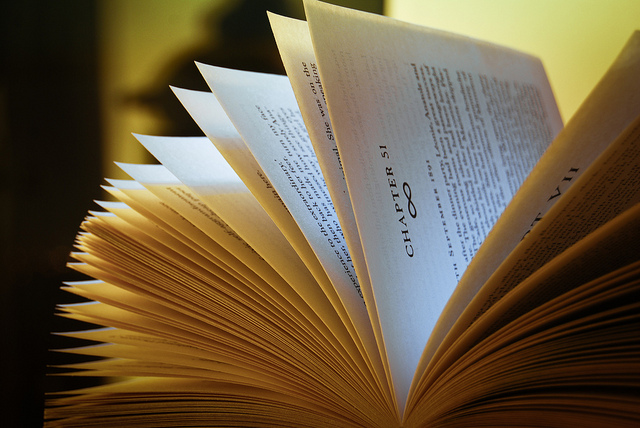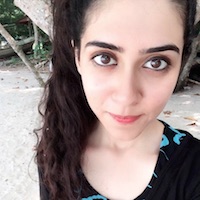“If you only read the books that everyone else is reading, you can only think what everyone else is thinking.” – Haruki Murakami
~
I love reading books by authors who aren’t famous.
I was at the book store with a fellow book-lover and dear friend when I picked up A Kiss And A Promise by Katie Flynn.
She asked me why I would buy that “when there are so many other books you can buy.”
She further noted that Flynn isn’t as well-known as many authors and I would be taking a risk by buying her novel.
“How about Virginia Woolf or Dan Brown?” she suggested. At this point, I thought she was taking book shopping way too seriously.
I mean, if a book feels right in your hand, isn’t that reason enough to buy it?
I love Virginia Woolf and would read her books over and over again but I wouldn’t limit myself to authors who have shown up on The New York Times Best Sellers list and ignore the ones who have never made it there.
If you search the web for “top 100 books to read in a lifetime” you will notice that most of the books listed are written by Caucasian authors and centered on Caucasian-populated countries with characters who also happen to be Caucasian.
In the past year, I came across two reading challenges taken up by two wonderful readers/writers.
The first challenge was by Lilit Marcus who only read books by women in 2013.
The second was by Sunili Govinnage who only read books by non-Caucasian authors for 12 months. The aim was to diversify their reading interests and to open up their minds and see places they wouldn’t have been able to reach otherwise.
When we talk about diversity, one of the biggest categories of authors we leave out is non-bestselling authors.
While I’ve never limited myself to authors who aren’t well-known, I have gone out of my way to read their books.
As I’ve read I’ve realized that non-bestsellers can be just as life changing as bestsellers.
As a child born in the 90s, I never had internet recommendations when I was growing up. My family didn’t read much except for my mom and she was usually too busy with work to find time. I used to roam book stores and libraries and read anything I could find. I don’t remember the authors and titles of every book I read as a child but every story stayed with me forever.
Sometimes, when I see a book with a name of an author who isn’t widely known, I still feel a connection to them. Many times I discover that these are authors whose books I had read as a child.
When I was young, there was no one telling me what to read and what not to read. So I read everything.
I read authors who had missed bestselling charts and authors who were never interviewed. I read books that were buried under heaps of bestselling books and I read bestselling books. I read Middle Eastern authors and authors whose books can’t be found on Wikipedia. I read South-Asian authors from the sub-continent because that is where my roots lie.
I read non-bestsellers because I’m curious. I want to hear what anyone cared enough to write down and publish. I want to figure out why some terrible novels make it to bestseller lists while some great ones do not.
I read non-bestsellers because I don’t pay attention to book ratings. I love reading book reviews and I trust my fellow book lovers immensely, but just because a book is rated low on Goodreads isn’t a good enough reason to not read it. The opposite is quite true as well (Fifty Shades, Twilight…ahem, ahem).
I read non-bestsellers because some books may have slipped through the ratings cracks.
They may have been bestsellers in other countries and languages but when they’re translated to languages I read, they may not be widely read.
I read non-bestsellers because we never know why a book may have missed the spotlight.
Bestseller lists work in unreliable ways.
First, they are calculated on weekly sales. So, if a book sold a million copies in its lifetime but never had a strong selling week, it probably won’t show up on the New York Times list.
Second, on weeks when sales are low, a book that sold 10,000 copies can make it to the top of lists and on other weeks, when sales are high, books that sold 50,000+ copies may not make it to the lists at all.
Imagine the life changing stories and wonderful places you may have missed because of these calculations.
Why would we base our reading choices on the number of copies people have bought? Twilight was bought by millions of teenage girls who were obsessed with sparkly vampires. Would you really want to base your reading choices on what romance obsessed, Edward Cullen-loving, naive teens would buy?
There are no books we should or shouldn’t read.
Read the book glaring at you from the windows of book stores. Read the abandoned, forgotten treasure buried under heaps of dusty, boring looking books.
I will read A Kiss And A Promise. I will read Jenifer Mohammad and Hemmingway, Etel Adnan and Kamila Shamsie.
Read what feels right. Read everything.
Often we don’t realize how mainstream, how Caucasian, how male or how bestselling our reading world is till we explore books and literature ourselves instead of letting Goodreads do it for us.
~
Relephant read:
Books are Evil. {Editor’s Letter}
~
Author: Aqsa Sajjad
Apprentice Editor: ML Broxton; Editor: Khara-Jade Warren
Image: Martin/ Flickr











Read 4 comments and reply